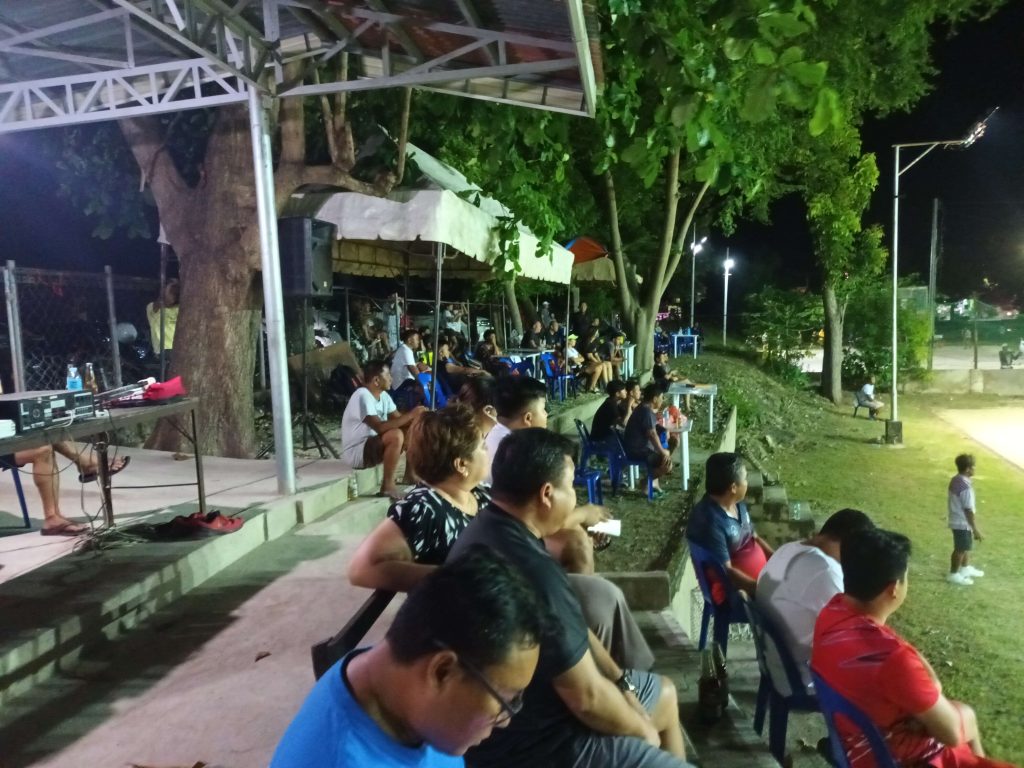A couple of years ago, the International Tennis Federation (ITF) suspended the Philippine Tennis Association (Philta) for its failure to implement reforms that would increase Philta’s membership and representation. Philta president Antonio Cablitas brushed it off and since the Philippine Olympic movement is basically an old boys club that follows the “scratch mine and I’ll scratch yours” philosophy, the POC (Philippine Olympic Committee) supported Cablitas in ignoring the suspension since it came a week before the POC election and Abraham “Bambol” Tolentino needed his vote.

A few days ago, I was reminded of what the ITF meant when it wanted Philta to increase its membership and representation when the Moalboal Parish Tennis Club hosted its third tennis derby since Philta’s suspension. Scores of players from community-based clubs all over the region participated, including those from Tacloban and Dumaguete.
All of these clubs are not Philta members by design.
I got to play on the first day simply because the big guns haven’t arrived yet. I was with the town’s priest, Fr. Gilbert Ytang, and we faced Tuburan’s Ruben “Armordia” Tambok and Odie Diamante, the younger brother of the mayor. We lost though we did give them, as sportswriters love to say, a run for their money.
There were a lot of interesting match-ups, including a singles game between Leyte and Tacloban that didn’t see a break of serve and went to a tiebreak. There was also a moment in one match when a bat, that was flying all over the tree-lined clay court hunting for butterflies, got hit by the ball as it went over the net. That reminded me of the clip of Randy Johnson hitting a bird with his fastball.
Events like this one occur all over the country, and sometimes with the support of local government units. You see, a lot of local officials play tennis and some mayors have become part of conversations in stories about tennis derbies.
Though some national sports associations love to appoint senators, these politicos’ appointments don’t really help the sport since they’re just basically lending their names. I’ve seen this happen in basketball, badminton, table tennis and volleyball associations.
On the other hand, local politicians who play tennis are not like these senators. They are actively involved in hosting events and supporting players. They are a factor in why these tennis communities thrive.
The same communities Philta ignores.
And as I mentioned, the Philippine Olympic movement is a “scratch-mine-and-I’ll-scratch-yours” community. Just recently, the POC suspended Philta (the vote is no longer needed) and, true to script, the Philta president said it has implemented reforms.
In a news report that is nothing short of comical, Philta said it has addressed ITF’s concerns on its membership with the same report stating three members of its board of trustees are from the Olivarez family. Philta can’t find members outside of the Olivarez family or outside of Manila?
I hope the ITF doesn’t fall for that farce. The same report said, “Philta started a countrywide, comprehensive development program with an emphasis on age-group tournaments, intensive training programs on its own.”
If Philta is truly serious in its reforms, it will recognize club tennis in the country. Again, it’s not that the community-based clubs need recognition. They’ve been thriving for years. It is because Philippine tennis will truly evolve by leaps and bounds should Philta recognize these vibrant communities.
They are the face of Philippine tennis, not Philta, and as long as the NSA and the POC refuse to acknowledge that, we’ll be left in the backwaters of international tennis.
